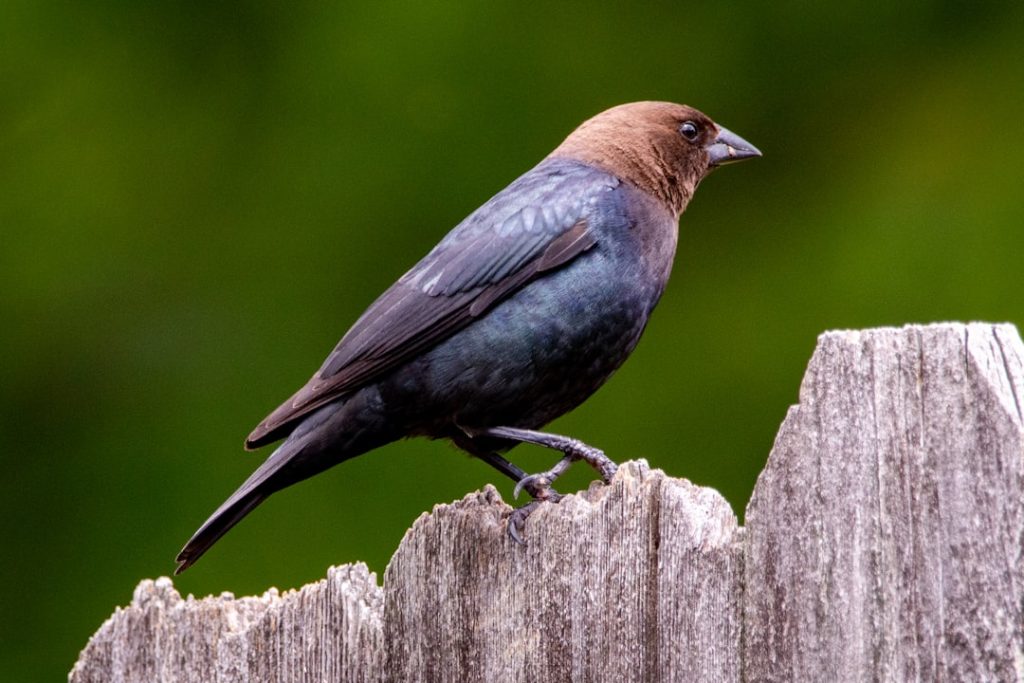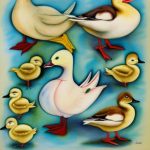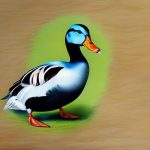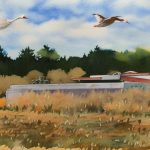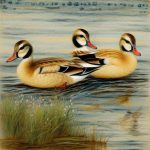Small domestic duck breeds are a popular choice for backyard farmers and homesteaders due to their manageable size, friendly disposition, and ability to provide eggs and meat. These ducks are typically smaller in size compared to their larger counterparts, making them easier to handle and care for in a smaller space. Small domestic duck breeds are also known for their adaptability to various climates and their ability to forage for food, making them a sustainable choice for small-scale farming operations.
Small domestic duck breeds come in a variety of colors and patterns, adding a charming aesthetic to any farm or backyard. They are also known for their calm and sociable nature, making them a favorite among families and individuals looking for a low-maintenance yet rewarding addition to their homestead. In this article, we will explore the characteristics, popular breeds, housing and care, breeding and reproduction, health considerations, and the role of small domestic duck breeds in sustainable farming.
Table of Contents
- 1 Characteristics and Physical Traits of Small Domestic Duck Breeds
- 2 Popular Small Domestic Duck Breeds
- 3 Housing and Care for Small Domestic Duck Breeds
- 4 Breeding and Reproduction of Small Domestic Duck Breeds
- 5 Health and Common Issues in Small Domestic Duck Breeds
- 6 The Role of Small Domestic Duck Breeds in Sustainable Farming
- 7 FAQs
Key Takeaways
- Small domestic duck breeds are popular for their manageable size and friendly disposition, making them a great choice for small farms and backyard enthusiasts.
- Small domestic duck breeds typically have a compact body, short bills, and a wide range of color variations, making them visually appealing and easy to care for.
- Popular small domestic duck breeds include the Call Duck, East Indies Duck, and the Dutch Hookbill, each with their own unique characteristics and traits.
- Housing and care for small domestic duck breeds should include a secure and spacious enclosure, access to clean water for swimming and drinking, and a balanced diet of commercial feed and fresh greens.
- Breeding and reproduction of small domestic duck breeds require careful monitoring of nesting behavior, providing a safe and comfortable environment for brooding, and ensuring proper nutrition for both the mother and ducklings.
Characteristics and Physical Traits of Small Domestic Duck Breeds
Small domestic duck breeds are known for their compact size, typically weighing between 2-4 pounds. They have a rounded body shape with short legs and a slightly upright posture. Their feathers come in a variety of colors, including white, black, brown, and various patterns such as mottled or spotted. Small domestic duck breeds also have a distinctive bill that is broad and flat, ideal for foraging in shallow water or on land.
These ducks are known for their hardiness and adaptability to various climates, making them suitable for both cold and warm environments. They are also excellent foragers, able to find much of their own food by grazing on grasses, insects, and small aquatic creatures. Small domestic duck breeds are also known for their high egg production, with some breeds laying up to 200 eggs per year. Their eggs are typically smaller in size compared to chicken eggs but are prized for their rich flavor and nutritional value.
Popular Small Domestic Duck Breeds
There are several popular small domestic duck breeds that are favored by backyard farmers and homesteaders. The Khaki Campbell is a well-known breed that is prized for its high egg production, with females laying up to 300 eggs per year. They have a khaki-colored plumage and are known for their friendly and sociable nature. The Welsh Harlequin is another popular breed, known for its striking silver or gold plumage and excellent egg-laying abilities.
The Indian Runner is a unique breed known for its upright posture and distinctive ability to run rather than waddle. They come in a variety of colors and are valued for their high egg production. The Dutch Hookbill is another small domestic duck breed with a unique hooked bill and distinctive upright posture. They are known for their calm temperament and excellent foraging abilities. Other popular small domestic duck breeds include the Buff, Blue Swedish, and Saxony, each with its own unique characteristics and traits that make them valuable additions to any small-scale farming operation.
Housing and Care for Small Domestic Duck Breeds
When it comes to housing small domestic duck breeds, it’s important to provide them with a safe and secure environment that protects them from predators and the elements. A sturdy coop or shelter with ample ventilation and protection from drafts is essential for keeping ducks healthy and comfortable. Ducks also require access to water for swimming and bathing, so a small pond or shallow water source should be provided if possible.
In terms of care, small domestic duck breeds require a balanced diet that includes a mix of commercial duck feed, fresh greens, and access to insects and small aquatic creatures. It’s important to provide ducks with clean water for drinking and bathing, as well as regular access to grit to aid in digestion. Regular health checks and parasite control are also important aspects of caring for small domestic duck breeds to ensure they remain healthy and productive.
Breeding and Reproduction of Small Domestic Duck Breeds
Breeding small domestic duck breeds can be a rewarding endeavor for homesteaders looking to expand their flock or raise ducks for meat or egg production. When breeding ducks, it’s important to provide them with a suitable nesting area that is quiet, secluded, and lined with soft bedding material such as straw or hay. Ducks are known for their broody nature, with females often exhibiting a strong desire to sit on their eggs and hatch a clutch of ducklings.
Once the eggs have been laid, it’s important to provide the nesting ducks with privacy and protection from disturbances to ensure successful incubation. Duck eggs typically take around 28 days to hatch, at which point the ducklings will require warmth, protection, and access to water for swimming and feeding. Breeding small domestic duck breeds can be a fulfilling experience that allows homesteaders to raise healthy ducklings and expand their flock for sustainable egg or meat production.
Health and Common Issues in Small Domestic Duck Breeds

Like all animals, small domestic duck breeds are susceptible to various health issues that can impact their well-being and productivity. Common health issues in ducks include respiratory infections, parasites such as mites or worms, bumblefoot, and nutritional deficiencies. It’s important to provide ducks with a clean and dry living environment, regular access to fresh water, and a balanced diet to help prevent these health issues.
Regular health checks by a veterinarian or experienced poultry keeper can help identify any potential health concerns early on and ensure that ducks receive prompt treatment if needed. Providing ducks with access to clean water for swimming and bathing can also help prevent skin and feather issues, as well as promote overall hygiene. By providing proper care, nutrition, and regular health checks, small domestic duck breeds can thrive and contribute to sustainable farming practices.
The Role of Small Domestic Duck Breeds in Sustainable Farming
Small domestic duck breeds play an important role in sustainable farming practices due to their ability to provide eggs, meat, pest control, and fertilizer while requiring minimal inputs. Ducks are excellent foragers that can help control insect populations in gardens and fields, reducing the need for chemical pesticides. Their manure is also valuable as a natural fertilizer that can improve soil health and fertility.
In addition to their pest control abilities, small domestic duck breeds are valued for their high egg production and flavorful meat, making them a valuable addition to any small-scale farming operation. Ducks are also known for their ability to thrive on marginal land or in wetland areas, making them an ideal choice for sustainable farming practices that prioritize environmental stewardship. By incorporating small domestic duck breeds into farming operations, homesteaders can benefit from their valuable contributions while promoting sustainable and eco-friendly practices on their land.
If you’re considering raising small domestic duck breeds, you may also be interested in creating a suitable environment for them to thrive. Poultry Wizard offers valuable insights on setting up a garden chicken coop, which can be adapted for ducks as well. Check out their article on garden chicken coop to learn more about providing a safe and comfortable space for your feathered friends.
FAQs
What are small domestic duck breeds?
Small domestic duck breeds are types of ducks that have been selectively bred to be smaller in size compared to other duck breeds. They are often kept as pets or for small-scale egg production.
What are some examples of small domestic duck breeds?
Some examples of small domestic duck breeds include the Call Duck, East Indies Duck, and the Dutch Hookbill Duck. These breeds are known for their small size and often colorful plumage.
What are the characteristics of small domestic duck breeds?
Small domestic duck breeds are known for their compact size, often weighing between 1-3 pounds. They are also known for their friendly and docile nature, making them popular choices for backyard duck enthusiasts.
What are the uses of small domestic duck breeds?
Small domestic duck breeds are often kept as pets due to their small size and friendly demeanor. They can also be used for small-scale egg production, as they are known to lay a good number of eggs for their size.
How do you care for small domestic duck breeds?
Caring for small domestic duck breeds involves providing them with a suitable living environment, access to water for swimming and bathing, a balanced diet, and regular veterinary care. It’s also important to provide them with protection from predators and extreme weather conditions.
Meet Walter, the feathered-friend fanatic of Florida! Nestled in the sunshine state, Walter struts through life with his feathered companions, clucking his way to happiness. With a coop that’s fancier than a five-star hotel, he’s the Don Juan of the chicken world. When he’s not teaching his hens to do the cha-cha, you’ll find him in a heated debate with his prized rooster, Sir Clucks-a-Lot. Walter’s poultry passion is no yolk; he’s the sunny-side-up guy you never knew you needed in your flock of friends!

